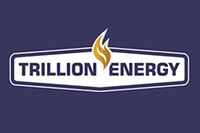A brief overview of oil price developments, supply and demand and significant market movers.
Oil prices displayed volatility after capping the biggest weekly advance since September on the back of signs of economic growth in the US, the world’s largest crude-consuming nation.
By early afternoon on Monday, West Texas Intermediate crude for February delivery was up 8 cents, at $93.17 a barrel, in trading on the New York Mercantile Exchange.
Brent crude fell 12 cents, hitting $111.23 a barrel on the ICE Futures exchange in London.
Crude rallied last week on the back of an agreement relating to US debt reduction.
“Now it is being held back by the realization that we are not yet done,” Bjarne Schieldrop, chief commodities analyst at SEB Commodity Research, told The Wall Street Journal.
He noted that the current downward trajectory of crude futures is reflecting the general weakness in equity markets, adding that SEB is predicting “softer prices” during the first quarter of 2013 as the Organization of the Petroleum Exporting Countries (OPEC) struggles to keep a cap on excessive production.
Meanwhile, analysts stated that South Africa is on the cusp of an oil rush never before seen in the country as booming energy demand exposes the vulnerability of the country’s dependence on coal.
ExxonMobil (NYSE:XOM) intends to search for crude and natural gas off the eastern coast of South Africa after locking in blocks near Durban. A number of other major producers are also beginning to show interest in the region.
“The presence of one super-major makes others take an interest,” said Dave van der Spuy, a resource evaluation manager at state regulator Petroleum Agency, in comments to Bloomberg. “The level of activity and interest in South Africa is at its highest ever.”
ExxonMobil also announced that it plans to develop an underwater oil field off the coast of Newfoundland. That will allow the company to hedge against discounted crude from Canadian oil sands.
Capital cost for the project, which is expected to begin production around the end of 2017, is estimated at $14 billion, according to a press release. The platform is being designed for daily production of 150,000 barrels of oil.
Plains Exploration & Production (NYSE:PXP) plans to start drilling at a highly prospective play off the coast of Morocco.
It will make a $15-million cash payment to buy into the 2.7 million-acre Mazagan license area off the coast of Morocco. The company said an independent audit determined that the area may contain more than 7 billion barrels of prospective recoverable resources.
Plains will serve as operator of the license area outlined in the deal, subject to the approval of the Moroccan government. The company said it plans to drill at least two wells in the area by 2014.





